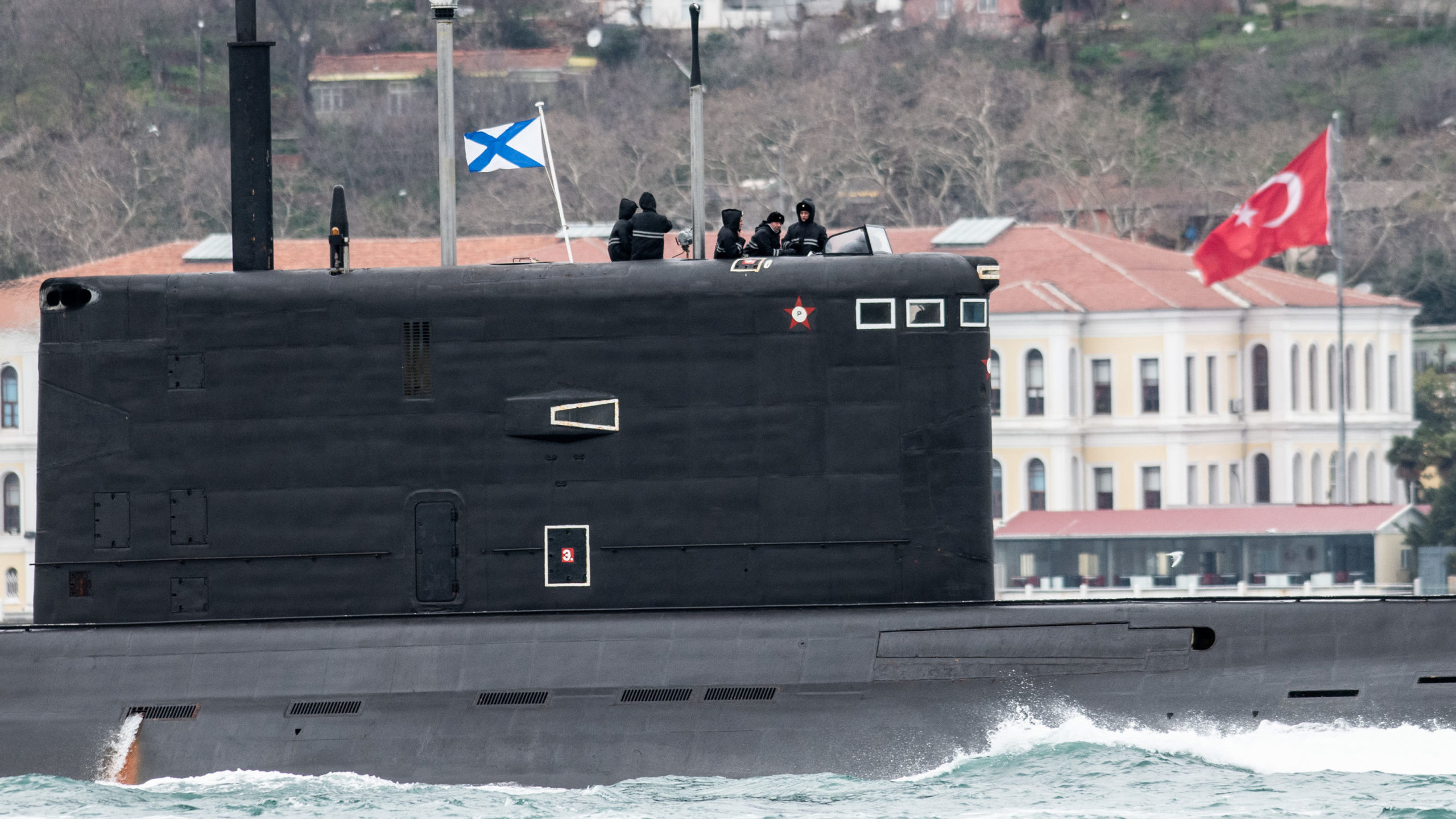Russian Power on Rise in Black Sea, May Also Grow in Eastern Mediterranean
Nations of the Levant will have to take Moscow’s interests into consideration, experts say
Coverage of the Russo-Ukrainian War has naturally focused on the ground war and its regional and global effects. However, the maritime arena merits consideration as well.
Russia expanded its important Black Sea coastline in 2014 with its de facto, though internationally unrecognized, annexation of Crimea. This, in turn, increased the power of its Black Sea Fleet.
Russia’s invasion of Ukraine, which began on February 24, has further strengthened its control over the Black Sea. This is because, early on, the Russian Navy occupied all the Ukrainian ports.
Prof. Efraim Inbar, the president of the Jerusalem Institute for Strategy and Security, told The Media Line that as a result of the war, Moscow could increase its influence in the Black Sea.
“Obviously, a longer coast for Russia will give it some advantage,” he said.
He added, however, that there are also NATO forces in the Black Sea, belonging to, among others, Romania, Bulgaria, and principally Turkey.
Still, Dr. Paulo Botta, the director of the Executive Program on the Contemporary Middle East at the Pontifical Catholic University of Argentina and a researcher at the Center for Research and Strategic Studies of the Argentine Navy, noted that the only “powerful naval forces” in the Black Sea belong to Russia and Turkey.
He told The Media Line that if Russia achieves uncontested naval control over that sea, it will have vessels available to deploy elsewhere.
“If the Black Sea ‘becomes Russian,’ it means that from the operational point of view, Russia will be able to send more naval forces to the Eastern Mediterranean,” Botta said.
The only obstacles between the Black and Mediterranean seas are the Bosporus and Dardanelles straits, which are controlled by Turkey.
Give the gift of hope
We practice what we preach:
accurate, fearless journalism. But we can't do it alone.
- On the ground in Gaza, Syria, Israel, Egypt, Pakistan, and more
- Our program trained more than 100 journalists
- Calling out fake news and reporting real facts
- On the ground in Gaza, Syria, Israel, Egypt, Pakistan, and more
- Our program trained more than 100 journalists
- Calling out fake news and reporting real facts
Join us.
Support The Media Line. Save democracy.
Botta added that the only tool Ankara has to impede Russian transit would be to apply the Montreux Convention, which was signed in 1936 and establishes limits on the movement of military vessels in times of both peace and war.
In practice, however, Turkey can only restrict the transit of military vessels in wartime, Botta added.
Russia’s freedom of action will be limited due to the Turkish control of the straits and the fact that it is a NATO member.
Inbar said, “Russia will not be able to escape the fact that the straits are controlled by Turkey.”
Botta added, “Without these constraints in the Black Sea, we expect a larger Russian naval power in the Eastern Mediterranean.”
However, Inbar said such Russian influence in the Eastern Mediterranean would take time to develop.
“It’s not enough to be the largest force in the Black Sea; they will have to build a larger fleet that will go also to the Eastern Mediterranean,” he said.
Looking ahead, Inbar said that if Moscow does increase its power in the Eastern Mediterranean, the countries of the region will have to take into consideration Russian interests.
Since 2015, Russia has had two military bases in Syria: a naval facility in Tartus and Khmeimim Air Base, near Latakia.
Inbar discussed one of the reasons Moscow is interested in the Eastern Mediterranean: “The Russians have an interest in the gas fields of Syria, and Lebanon,” he noted.
Botta agrees. “Since the European market will be closed to Russian companies, they will be looking for opportunities in other regions,” he added.
Concerning Israel, Inbar believes that for security reasons it should have gotten the Russians involved in its gas field operations.
“I think Israel made a mistake by not making a deal with the Russians. It could have provided security for these fields, which are now endangered by Hamas and Hizbullah,” he said. “Those groups are afraid of Russia, and they would not attack a gas field that is co-owned by Russians.”
Inbar said that such an arrangement would not have damaged Israel’s relations with the West. “It’s business, it is a financial matter. They [the West, through private companies] are participating [in the fields], so they have an interest.”
He believes that Greece and Cyprus would also welcome Russia’s involvement in the case that its presence in the Mediterranean grows.
Increased Russian influence in the Eastern Mediterranean will translate into increased Russian influence in Middle Eastern geopolitics.
On the one hand, Inbar said, Israel will continue to maneuver between the Americans and the Russians. But Israel will stay an ally of the Western camp.
Botta believes that every country which abuts the Eastern Mediterranean coast would be affected by greater Russian influence in the region, one way or another. “I think that Syria will benefit, and some states, such as Turkey, will have to share influence over the sea,” he said.



